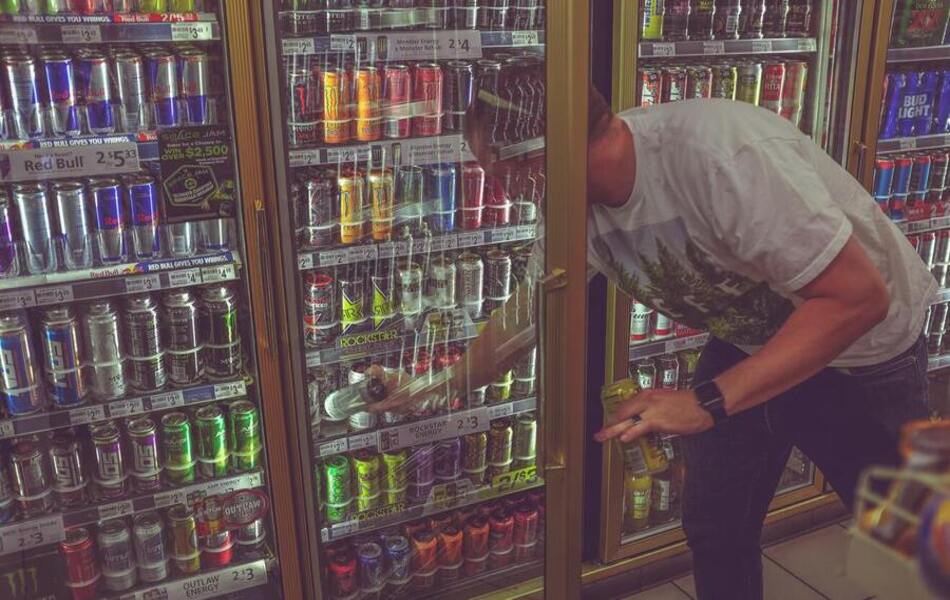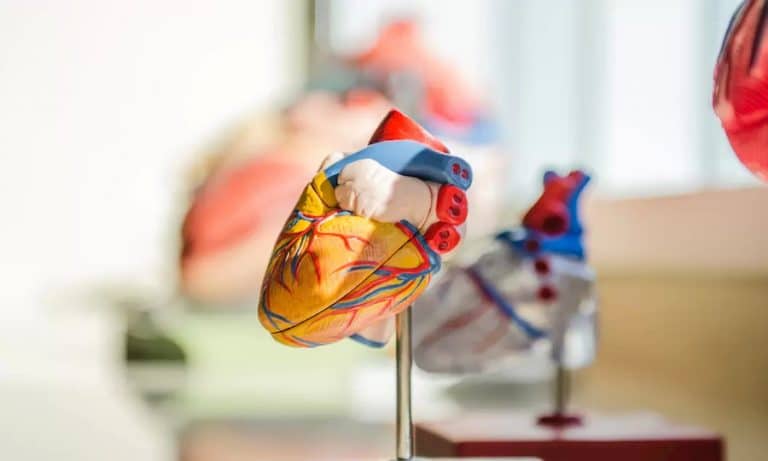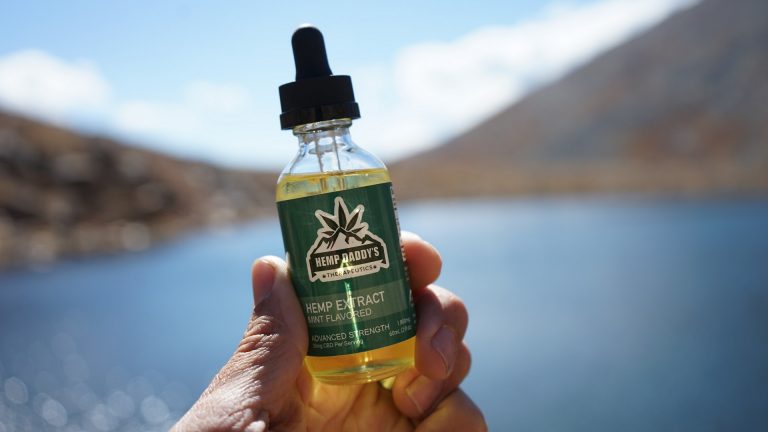20 Must-Know Energy Drink Statistics and Facts for 2024

To be productive, many people take stimulants, such as energy drinks. These are non-alcoholic beverages known for increasing energy and enhancing physical performance and mental alertness. Typically, energy drinks contain caffeine, vitamin B, taurine, and other ingredients responsible for the popularity of these beverages.
Now it’s high time we gained insight from the energy drink statistics. Here, you can find everything there is to know about the beverages—their composition, worldwide consumption, industry growth, and perks and drawbacks of consuming these drinks. Without further ado, let’s dive right in!
Top 10 Energy Drink Statistics for 2024
- Every day, 85% of people in the US consume at least one caffeinated drink.
- 25% of college students mix alcohol with energy drinks.
- 34% of men at the age of 18–24 are the biggest energy drink consumers.
- In the Czech Republic, consumption of energy drinks among children stood at 40%.
- By 2026, the global energy drink market will reach $86.01 billion.
- North America’s energy drink market will grow at a CAGR of 6.2% by 2025.
- Energy drinks accounted for 31% of the packaged beverage sales in the US convenience stores.
- Red Bull is the top player in the US, accounting for 35% of the sales.
- The Asia-Pacific industry will grow at a CAGR of 7.30% by 2026.
- Drinking more than six energy drinks a month poses some serious risks.
The Most Fascinating Energy Drink Facts and Statistics
More often than not, people turn to something with caffeine to stay alert and have more energy. Generally, moderate intake of caffeinated drinks can’t be harmful. However, drinking too much or mixing a caffeinated beverage with alcohol can be dangerous. For this and much more information, keep reading.
1. Every day, 85% of people in the US consume at least one caffeinated drink.
(Science Direct)
Caffeine consumption statistics prove that 85% of people in the US don’t let a day pass by without drinking one (if not more) caffeinated beverage—be it a quality CBD-infused coffee or an energy drink. Interestingly, the caffeine intake is mostly driven by the consumption of carbonated soft drinks, tea, and coffee. Beverages like chocolate milk, energy shots, and energy drinks contribute the least to the overall caffeine intake in the US.
2. A 16-oz energy drink has 160 mg of caffeine, while a 16-oz cup of coffee—330 mg.
(Energy Drink Information)
Now, a regular 16-oz energy drink has 160 mg of caffeine. To put things in perspective, that’s the caffeine concentration of 10 mg per oz. In comparison, a 16-oz cup of coffee has around 330 mg of caffeine—20 mg per oz. To sum it up, energy drinks have half the caffeine present in coffee.
3. Up-and-coming energy drinks by Celsius are sweeping the market.
(Food Dive)
Celsius is a company you won’t catch resting on its laurels. Now, it aspires to be the next 1-billion-dollar brand. These aspirations aren’t baseless, may we add. From 2018 to 2019, the company’s sales increased by 43% and reached $75.1 million. What’s more, its stock price increased by a whopping 400% by November 2020. Pushed into Kroger and Walmart, Celsius is making its way to the top as one of the best energy drinks.
4. 25% of college students consume alcohol with energy drinks.
(CDC) (NCCIH)
Despite being advised against it, college students consume alcohol with energy drinks. Energy drink statistics reveal that such drinkers binge-drink more frequently than those who don’t mix the two. The dangers of such practice cannot be overstated. When alcohol is mixed with energy drinks, it may lead to alcohol intoxication, thus increasing the risk of injuries.
5. There is a ten-fold increase in energy drink-associated-doctor visits.
(Advance ER)
Some people might overdose on energy drinks and even end up in the emergency room. According to the US Substance Abuse and Mental Health Services Administration (SAMHSA), there has been a ten-fold increase in the number of visits to the ER following the energy drink overdose. SAMHSA study also noted that people aged 18–24 make up the highest number of those visits.
Energy Drink Consumption Statistics
Not everyone enjoys consuming energy drinks, and that’s normal. That said, those who do enjoy it may go overboard sometimes. There has to be some balance and moderation. Otherwise, energy drinks can be dangerous. Who consumes energy drinks the most, and how much are they spending on their favorite beverages? Read on to find out.
6. Men at the age of 18–24 are the biggest energy drink consumers.
(ACMT) (NCCIH)
As statistics on energy drink consumption by age show, energy drinks are mostly consumed by teens and young adults. That is to say, people between the age of 18 and 24 are the biggest energy drink consumers. To be more specific, 34% of men aged 18–24 consume energy drinks the most, and about a third of teens (31%) aged 12–17 drink them regularly.
7. In the Czech Republic, consumption of energy drinks among children stood at 40%.
(Research Gate)
The European Food Safety Authority (EFSA) has conducted a study on energy drink consumption by country. The results showed that 68% of the adolescents aged 10–18, 30% of adults, and 18% of the children aged 10 and under, consume energy drinks. Among children, the consumption varied from 6% in Hungary to an astounding 40% in the Czech Republic. The average consumption was 0.49 liters in children and 2 liters in adolescents.
8. 33.85% of the US respondents aged 18–29 claim they consume energy drinks regularly.
(Statista)
An impressive 42.32% of the US respondents aged 30–49 consume energy drinks. Those aged 50–64, on the other hand, make up only 10.48% of the consumers, energy drink consumption statistics reveal. All in all, despite numerous warnings, a whopping 33.85% of the respondents aged 18–29 claim they consume the drinks regularly.
9. In Canada, one in six energy drink consumers has exceeded the maximum daily consumption.
(Science Direct)
About 16% of the Canadian respondents reported ever consuming more than two energy drinks in a day. According to energy drink consumption by age, exceeding two drinks in a day was common among older adults aged 18–24, British Columbia residents, and aboriginal respondents (vs. white only). That said, about half of youth and young adults were more of “experimental consumers.” In other words, they’ve consumed five (or even fewer) drinks in their lifetime.
Global Energy Drink Industry Statistics
The demand for energy drinks drives the energy drink market to a great extent. The youth is crazy for its different flavors and the many benefits of consuming the beverage. So it goes without saying that the future of these drinks is bright, and the current trends are here to stay.
10. Energy drink statistics suggest the Asia-Pacific industry will grow at a CAGR of 7.30% by 2026.
(Mordor Intelligence) (Allied Market Research)
The interest in energy drinks is increasing worldwide. As of now, North America is the biggest market for energy drinks. Next in line is the Asia-Pacific region. The region’s industry is forecasted to grow at a CAGR of 7.30% by 2026. Then, Europe is considered an emerging market for energy drinks, growing at a healthy rate. Energy drink markets in other regions, like Africa and South America, are considerably smaller yet forecasted to grow in the future.
11. By 2026, the global energy drink market will reach $86.01 billion.
(Allied Market Research)
In fact, the world’s energy drink market is forecasted to grow at a CAGR of 7.20% and get to $86.01 billion by 2026, according to stats on energy drinks. Interestingly, when it comes to alcoholic vs. non-alcoholic energy drink segments, the latter is forecasted to continue dominating the market.
12. Red Bull is sold in 167 countries.
(Investopedia)
Red Bull became notable in the US in 1997. Although the major energy drink market is in the US, the company sells its flagship product in more than 160 countries. What’s more, the company recently experienced sales growth in Turkey, Brazil, Japan, Russia, and India. The plan is to continue expanding in Western Europe and the Far East.
US Energy Drink Market Statistics
Busy lifestyle and increasing health awareness drive the demand for energy drinks in the US. What’s more, drinking these beverages has become a status symbol, particularly for younger generations. Read our energy drinks facts and statistics below to find out how the energy drink market looks like in the US.
13. North America’s energy drink market will grow at a CAGR of 6.2% by 2025.
(Mordor Intelligence)
In the beginning, energy drinks were used as dietary supplements in North America. Later, that changed with the improved features. As mentioned before, North America has the biggest energy drink market, and its development won’t stop any time soon. In fact, stats on energy drinks in America estimate that the industry will grow at a CAGR of 6.2% by 2025.
14. Energy drinks accounted for 31% of the packaged beverage sales in the US convenience stores.
(Statista)
Some of the most sold packaged drinks in the US are energy drinks. In 2019, 31% of the packaged beverage sales were attributed to energy drinks, as energy drink sales statistics point out. The best-selling energy drink in the US is undoubtedly Red Bull. In fact, its sales amounted to $2.9 billion in 2020.
15. Red Bull is the top player in the US, accounting for 35% of the sales.
(Market Research Reports)
The first energy drink introduced in the US was Red Bull in 1997. Some other energy drink companies in North America are Monster Beverage Corporation, Keurig Dr. Pepper, PepsiCo Inc., Living Essentials, Rock Star Inc., Extreme Energy Drink, Beaver Buzz, and Guru Energy. According to energy drink facts, Red Bull and Monster Beverage Corporation generate the most energy drink sales—35% and 26%, respectively.
Energy Drink Facts About Pros and Cons
Even though there are perks to drinking energy drinks, there are some downsides, too. After consuming these beverages, if you notice symptoms like chest pain, anxiety, headache, tremors, fainting, or weakness, consult with a doctor right away. Now let’s read about some benefits and hazards of energy drinks.
16. Energy drinks improve alertness for about 45 minutes, based on energy drink facts.
(Medical News Today) (Nova)
The primary reason why people buy energy drinks is that they offer an instant energy boost, as well as physical and mental stimulation. However, the effects of energy drinks on the body don’t last that long. After the first 45 minutes of consuming an energy drink, you feel extremely alert and concentrated. However, the alertness decreases after an hour or so, and you might feel tired.
17. Consuming energy drinks in larger amounts may lead to irregular heartbeats and nervousness.
(Unlock Food) (NCCIH)
When it comes to the danger of energy drinks, most data shows that moderate intake is safe for adults. But, if you mix energy drinks with alcohol or consume them in larger amounts, there are some downsides. For instance, nervousness or irregular heartbeat may occur. Strictly speaking, large amounts of energy drinks can cause severe blood vessel problems. The excessive intake can even harm the cardiovascular and nervous system in children. All in all, the energy drinks effects can be frightening.
18. Energy drinks can improve your mood.
(Nova)
Nowadays, you can find energy drinks everywhere. They are also affordable, with prices starting at only one dollar. Once you’ve consumed an energy drink, you can feel some of the health benefits of energy drinks, like being high on energy and feeling much better. Following that, your mood is likely to improve, too.
19. These beverages might induce dental decay.
(ACMT)
A General Dentistry study has shown that sugar found in energy drinks can erode tooth enamel. In fact, its harm is greater than that of other beverages, like sports drinks, sodas, and root beer. Having read this, keep in mind the effects of energy drinks on your teeth.
20. Drinking more than six energy drinks a month brings about some serious risks.
(ACMT)
Research has found that if people drink more than six energy drinks per month, they are twice as likely to smoke marijuana or abuse alcohol. What’s more, they have three times the risk of abusing prescription drugs, smoking cigarettes, or engaging in a physical fight compared to those who don’t drink energy drinks.
Conclusion
Our fast-moving world asks for an almost infinite source of energy. Thus, it comes as no surprise that so many of us resort to either the best caffeine pills we can land on or a packaged caffeinated beverage. More often than not, energy drinks catch our eye, energy drink statistics confirm.
The world has witnessed an evolution of energy drinks. The beverages have gone from being niche products to becoming one of the fastest-growing beverage industry segments. In other words, the energy drink market is a force to reckon with.
FAQs
How many deaths are related to energy drinks?
The safety of these drinks is open to discussion. Energy drinks have been associated with myocardial infarction, coronary vasospasm, cardiac arrest, and spontaneous coronary dissection. According to the Food and Drug Administration, energy drinks have been responsible for 34 cases of death.
How many energy drinks are sold per year?
As the years go by, the number of energy drink sales increases. According to the latest statistics, energy drink sales reached about $3.7 billion in 2020. That is one billion more in comparison to five years ago. And the number will continue to grow.
What is the average consumption of energy drinks?
Energy drinks are popular, and their consumption levels are rising as well. According to European Food Safety Authority, adults consume an average of 2 liters of energy drinks per month. Similarly, adolescents consume 2.1 liters a month.
What age group consumes the most energy drinks?
When talking about energy drinks, what’s not to like? They are refreshing, and you can find them anywhere. However, some people enjoy drinking energy drinks more than others. Namely, energy drinks are most popular among young adults and teens. Following that, people aged 18–24 consume them the most, energy drink statistics disclose.







Is there any country one can name which has no market for energy drinks?